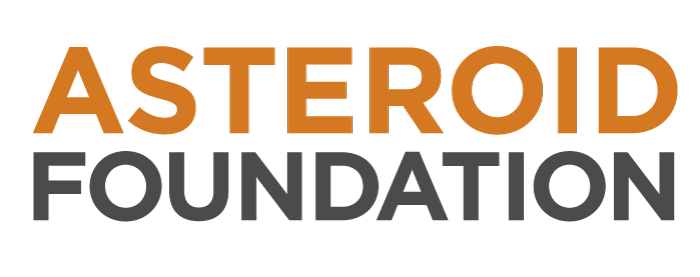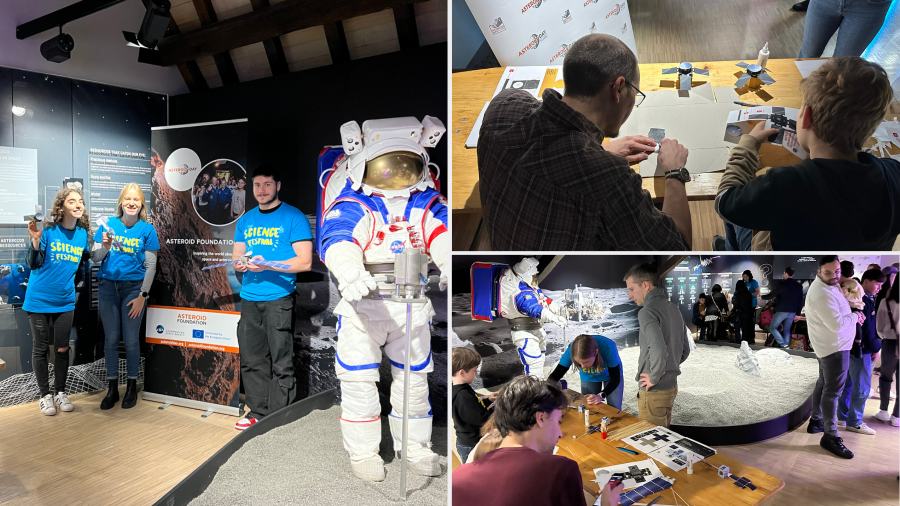This November was filled with promoting science and asteroids for the team at the Asteroid Foundation.
The Foundation attended the grand opening of the MNHN’s latest exhibition, “Asteroid Mission” running from November 10, 2023, to August 18, 2024. This captivating exhibit delves into the history of our solar system, the formation and evolution of asteroids, space resources, planetary defense, and the potential for life beyond Earth.
Asteroid Foundation was honoured to support the exhibition preparation. If you get to visit Asteroid Mission, you will hear Asteroid Day experts like Patrick Michel, Alan Fitzsimmons, Sara Russell, and Marco Micheli talk about how dangerous asteroids are, how we detect them and what happens after their detection in interactive videos.
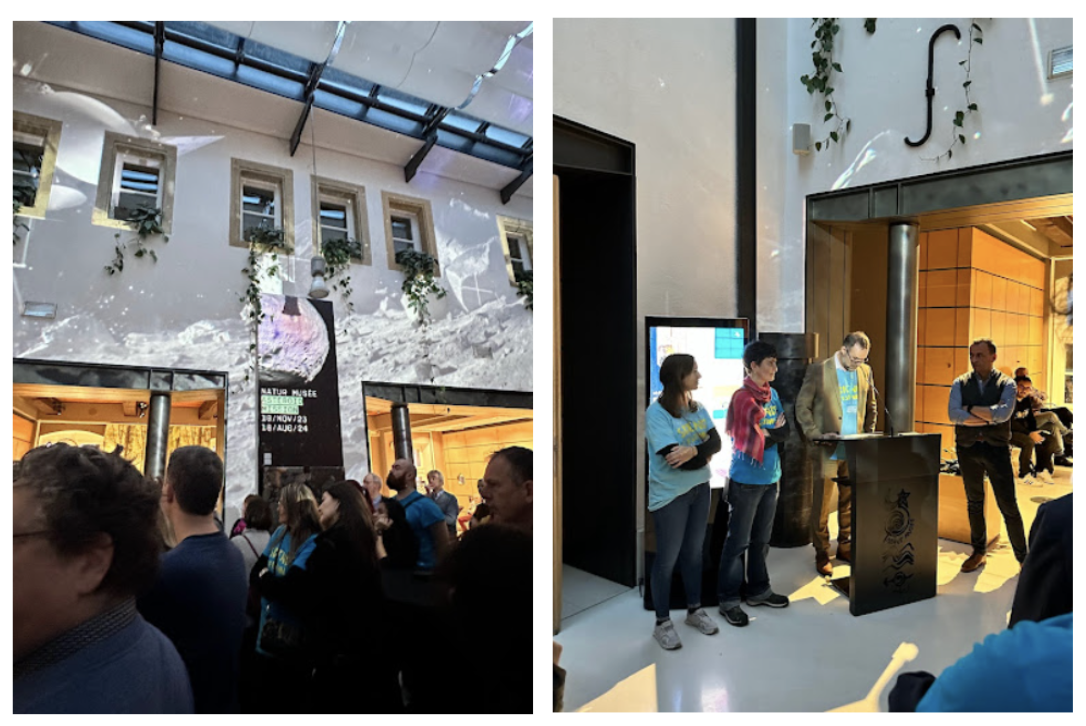
Opening of the “Asteroid Mission” exhibition at the Musée National d’Histoire Naturelle in Luxembourg-Grund // Welcome speech at the grand opening with Sandrine Amann, Anne-Marie BIS, Patrick Michaely, Eric Buttini (from left to right)
On November 11-12, Asteroid Foundation actively participated in the 2023 edition of the Science Festival. The festival, held at the Centre Culturel de Rencontre Abbaye de Neumünster and the Musée National d’Histoire Naturelle in Luxembourg-Grund. The event offered an immersive experience about nature, physics, technology, and medicine.
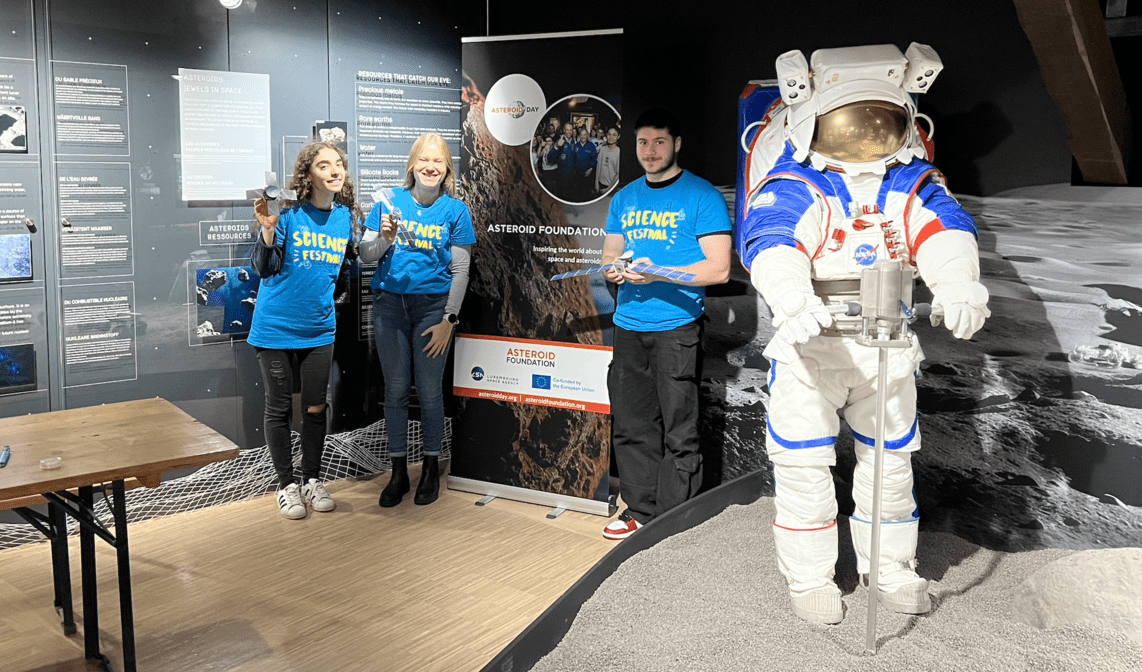
Picture of the Asteroid Foundation Team with the Paper Models
During the festival, the Asteroid Foundation hosted an interactive activity, inviting visitors to build paper models of spacecraft used in asteroid missions. More than 400 enthusiastic participants volunteered and successfully accomplished the task.
Enthusiasts could choose from three iconic missions:
- NEAR Shoemaker: First spacecraft to orbit and then land on an asteroid (Eros, a near-Earth asteroid, on the 12th of February, 2001. It was launched by the U.S National Aeronautics and Space Administration.
- Rosetta: Rosetta was a European Space Agency mission, launched on the 2nd of March 2004. It was designed to rendezvous with Comet 67 P/Churyumov-Gerasimenko, drop a probe (Philae) on the surface, study the comet from orbit, and fly by at least one asteroid en route.
- The Psyche mission: is a NASA mission, launched on the 13th of October 2023. It is a journey to a unique metal-rich asteroid orbiting the Sun between Mars and Jupiter. What makes the asteroid Psyche unique is that it appears to be the exposed nickel-iron core of an early planet, one of the building blocks of our solar system.
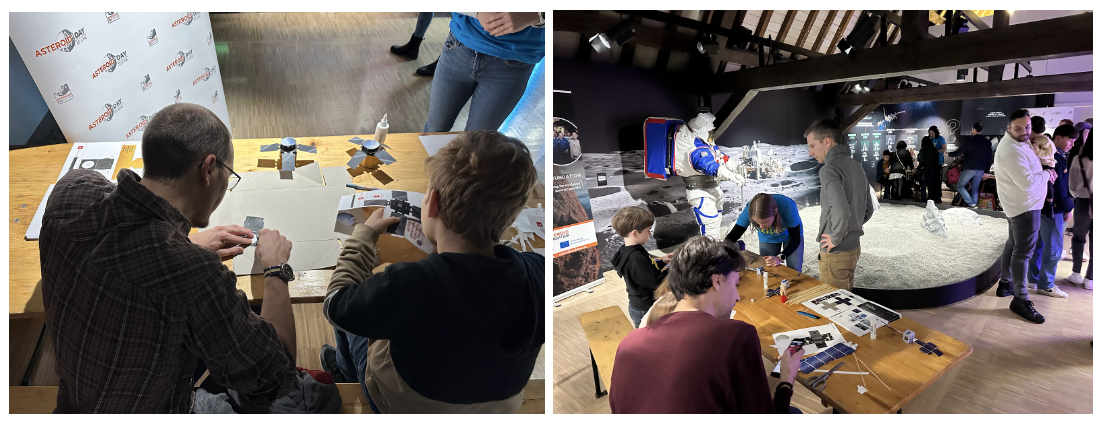
Kids building the paper models with their parents
If you couldn’t meet us at the MNHN but still want to make the models, here are the links:
Share them on social media and tag us so we can admire your masterpiece!

